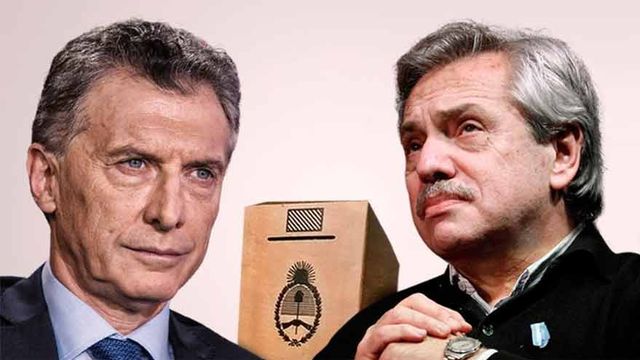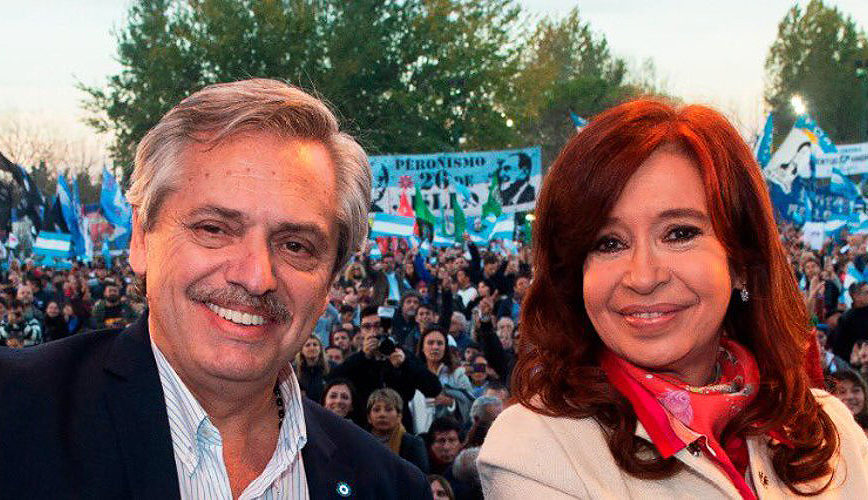RIO DE JANEIRO, BRAZIL – After the “Black Monday” for Argentine financial markets, including a violent crash of the peso after the primary elections clearly won by the opposition, president Mauricio Macri tries to regain lost confidence.
In particular, Macri’s statements, in which he blamed the victorious opposition alliance “Frente de Todos” and its voters for the reaction of the markets, made waves afterward.

“I was very upset by the results of the primaries and had slept very little,” Macri apologized on Wednesday. He then promised short-term gifts of money for those most affected by the renewed fall of the peso: those who have been living below the poverty line for a long time and the many self-employed who earn their living in small and medium-sized enterprises (Pymes).
Macri announced: from September, extra monthly payments of 2,000 pesos (around US$40) for the self-employed, an increase in the minimum wage, tax relief, the freezing of the petrol price for ninety days and the abolition of taxes on food from the basic food basket.
The costs to the state arising from these short-term populist measures are expected to amount to 40 billion pesos (US$825 million).
Against the backdrop of an almost bankrupt state whose debt has risen from around fifty to over ninety percent of GDP in nearly four years of government and which covers current costs primarily from IMF loans, the announcement appears to be less of a sustainable measure than a gift to the electorate. These short-term promises also contradict Macri’s previous policy of pursuing a “long-term plan”.
In the short term, the markets have not yet been convinced: the cost of the peso rose immediately by eight percent following Macri’s announcements on Wednesday, and the risk premium on Argentine government bonds increased by a further ten percentage points to 1,900 basis points. On Thursday, however, the risk rating fell to the same extent and closed at a still-high 1,769 points.
Unions such as the CTA and CTEP, as well as social movements and representatives of the Pymes, which are organized in the Association of National Entrepreneurs (ENAC), declared Macris’ measures “inadequate” and “campaign tactics”.
Alberto Fernández, the left-wing Frente de Todos candidate, now clearly favored after the primary elections, declared after a personal meeting with Macri on Wednesday that he should act like a president and stop acting like a candidate in the election campaign. This would not do justice to his responsibility to the Argentine people.
Fernández also said, in agreement with economists on Mitre radio, that the current value of around sixty pesos against the dollar was “appropriate” under the circumstances. For a further increase, there is no basis.
This had been seen differently in the course of Monday, among others by the former presidential candidate Sergio Massa, who now belongs to the Fernández camp.
In the television program “Animales Sueltos”, he expressed concern that Macri could rely on an economic escalation as a tactic solely for his own benefit and in order to prevent a possible direct defeat in the first round of the presidential election on October 27th.

Massa also pointed to the Macri camp’s questionable actions in the run-up to the primaries: on Friday, three institutes close to the government published survey results predicting a neck-and-neck race and thus a realistic option for further market-friendly government years. Sunday’s results then thwarted the sign of continuity sent to entrepreneurs and the international financial markets.
This, along with the fundamental skepticism of the financial markets towards a return of the Left to power, could have been a major reason for the fierce reaction of the markets.
Fernández had already announced long before the primary elections that he, as a possible future president, would not break with the IMF and other credit commitments, but would first renegotiate the conditions.
The “Frente de Todos” camp has acted accordingly prudently and with balance in mind in recent days. In a few months, however, they will, in all likelihood, have to deal responsibly with the after-effects of Macri’s economic policy and, in addition, the distrust of the financial markets.

